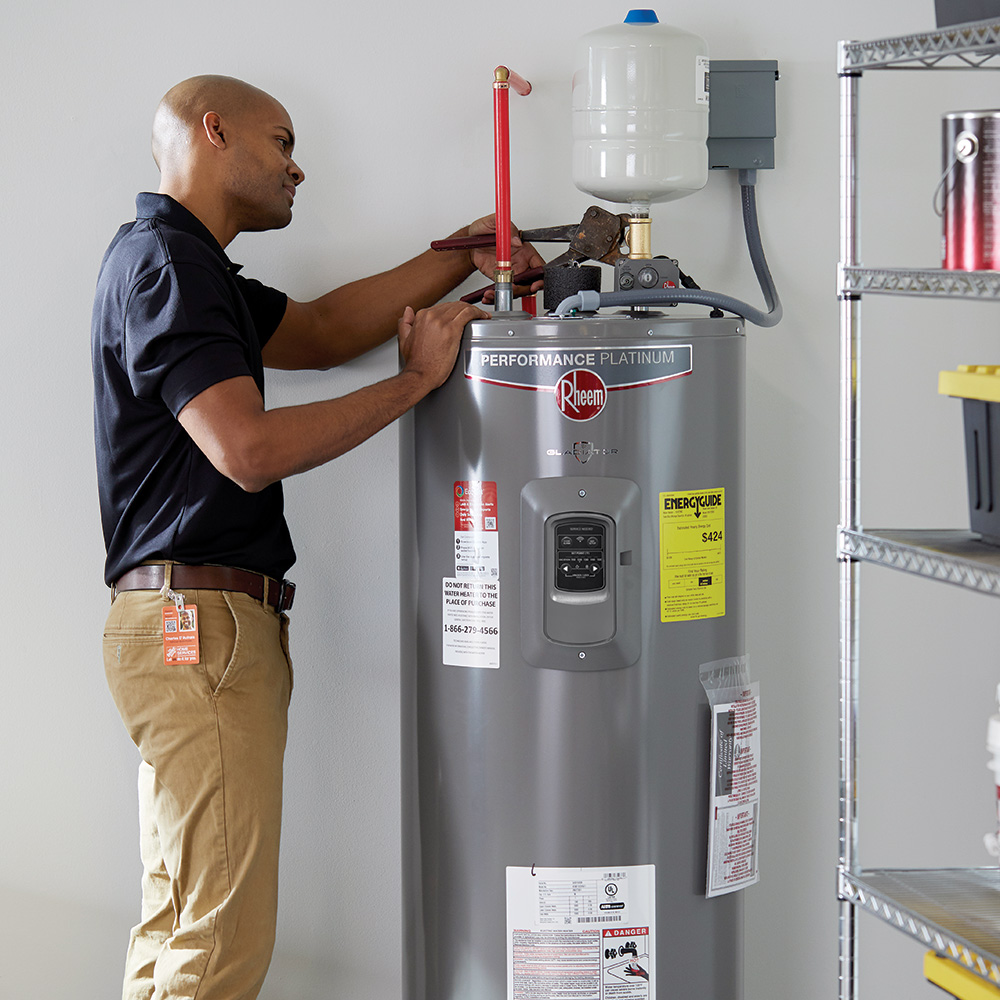Common Water Heater Issues
Common Water Heater Issues
Blog Article
We have unearthed this post involving Water Heater Repair and Troubleshooting listed below on the internet and reckoned it made perfect sense to discuss it with you here.

Visualize beginning your day without your routine hot shower. That already establishes a bad tone for the remainder of your day.
Every house needs a reliable water heater, yet just a couple of understand how to take care of one. One very easy way to maintain your hot water heater in leading shape is to look for mistakes consistently as well as fix them as quickly as they appear.
Remember to switch off your hot water heater prior to smelling about for faults. These are the hot water heater faults you are probably to encounter.
Water also hot or as well cool
Every water heater has a thermostat that figures out exactly how hot the water obtains. If the water entering into your home is also warm regardless of setting a practical maximum temperature level, your thermostat could be faulty.
On the other hand, too cold water may result from a failed thermostat, a damaged circuit, or incorrect gas flow. For instance, if you utilize a gas hot water heater with a busted pilot burner, you would get cold water, even if the thermostat is in excellent problem. For electrical heating units, a blown fuse might be the offender.
Inadequate warm water
Water heaters come in several sizes, depending on your warm water demands. If you lack hot water prior to everybody has actually had a bathroom, your water heater is as well small for your family size. You must think about setting up a larger water heater container or selecting a tankless water heater, which takes up much less room as well as is more durable.
Strange sounds
There are at the very least five sort of noises you can speak with a hot water heater, yet the most usual interpretation is that it's time for the hot water heater to retire.
First off, you should be familiar with the regular sounds a hot water heater makes. An electrical heater might sound different from a gas-powered one.
Popping or banging audios typically suggest there is a slab of sediment in your storage tanks, and it's time to cleanse it out. On the other hand, whistling or hissing sounds might just be your shutoffs allowing some pressure off.
Water leaks
Leakages can originate from pipelines, water connections, valves, or in the worst-case situation, the storage tank itself. Gradually, water will corrode the container, and discover its escape. If this takes place, you require to change your hot water heater as soon as possible.
Nonetheless, prior to your adjustment your entire container, make certain that all pipes are in place which each shutoff functions completely. If you still need help identifying a leakage, call your plumber.
Rust-colored water
Rust-colored water indicates one of your hot water heater parts is rusted. It could be the anode pole, or the storage tank itself. Your plumber will certainly be able to identify which it is.
Warm water
No matter just how high you set the thermostat, you will not obtain any type of warm water out of a heating unit well past its prime. A hot water heater's effectiveness might decrease with time.
You will certainly also get warm water if your pipes have a cross connection. This means that when you activate a faucet, hot water from the heating unit streams in alongside regular, cold water. A cross connection is very easy to spot. If your hot water faucets still pursue closing the hot water heater shutoffs, you have a cross connection.
Discoloured Water
Rust is a major root cause of unclean or discoloured water. Corrosion within the water tank or a failing anode rod might trigger this discolouration. The anode pole safeguards the tank from rusting on the inside and also must be inspected yearly. Without a rod or a correctly functioning anode pole, the hot water promptly rusts inside the tank. Get in touch with a professional hot water heater service technician to identify if changing the anode rod will certainly repair the trouble; otherwise, replace your hot water heater.
Conclusion
Preferably, your water heater can last one decade before you require a change. Nevertheless, after the 10-year mark, you might experience any one of these faults a lot more frequently. Now, you ought to include a brand-new water heater to your budget plan.
How To Troubleshoot 3 Common Water Heater Problems in Twin Cities
The Water Heater Is Leaking
A leaky cold water inlet valve A loose pipe fitting A leaky temperature and pressure relief valve A corroded anode rod A cracked tank Turn Off Your Water Heater:
Shut off your gas water heater by turning the gas valve on the unit to the “OFF” position. Shut off your electric water by switching its power off at your electrical panel. Look for a two-pole breaker labeled “water heater” and turn it to the “OFF” position. Move the ball valve connected to the water heater to be perpendicular to the piping at a 90° angle. Look for the Leak:
Depending on whether the water is coming from the tank's top or bottom, you’ll want to look for the leak in different locations.
If the leak comes from the top of the tank, carefully look for water escaping from the cold water inlet valve or loose pipe fittings. Rusted hot and cold water valves can have loose connections with the tank, with water leaking out of them.
https://mspplumbingheatingair.com/blog/how-to-troubleshoot-3-common-water-heater-problems
As a passionate reader on Water Heater Repair and Troubleshooting, I thought sharing that excerpt was really helpful. Do you know about someone else who is in the market for the subject? Feel free to promote it. We take joy in reading our article about Water Heaters Problems.
Immediate assistance? Ring! Report this page